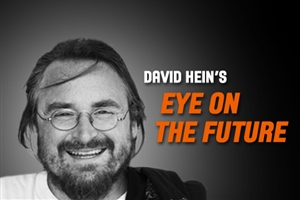
Basketball. Is. Everywhere.
CHARLOTTE (Steve Goldberg's Wheel World) - For the better part of the last several weeks, I spent a good portion of my time watching the best wheelchair basketball players and national teams from around the globe battle it out for world supremacy.
Far from the world class glamor of Toronto and Incheon though, other games were being contested, almost all by athletes and teams you would never hear about.
FIBA likes to say that basketball is everywhere and I have to agree. There are 214 member nations in FIBA while the United Nations has but 193.
Like football, the real kind not the American version, basketball is a universal language in that only a ball is required for the conversation to begin. Even without a ball.
In Kathmandu, the Nepal Army team went 4-0 to claim the men's title of the Valley-wide Wheelchair Basketball Championship held at the Himalayan Higher Secondary School court. According to MyRepublica.com, Army overcame Wheelchair Sports Association, Nepal 17-6, Nepal Spinal Cord Injury Sports Association 18-0, Spinal Cord Injury Rehabilitation Center 8-2 and Jawalakhel 8-0. Wheelchair Sports Association finished runner-up.
As the scores indicate, it wasn't about a major trophy but for something far more valuable: the confidence and proving to others as well as oneself that it can be done.
In Chile, where reaching the international level is an objective not yet within grasp, there was a club competition. The Parasport News via Noticias.terra.cl reports that Dach de Santiago won the first of four stages of the wheelchair basketball competition of the Nacionales Paralimpicos 2014, defeating Silberhawks de Coquimbo 38-32 in the final. Three players from Chile's men's national team played for Dach in the final including Cristian Espinoza, Cristian Fritz and Rodrigo Osorio.
There were clinics and camps in Chennai, India as well as in Bismarck, North Dakota, USA.
In Chennai, Rajul Padmanabhan, Director of Vidya Sagar, an organisation for the disabled, emphasized that the promotion of adaptive sports has to be taken seriously and be made more accessible to those who are physically challenged.
"There is no point holding events like World Disability Day unless proper facilities are developed and sports in itself is made accessible to the people," he said.
That's a far cry from the United States where the Dreams in Motion camp was representative of dozens happening around the country. While there was some essence of introduction to the sport as there was in India, it was more focused on actual game skills.
"Basic passing skills, pushing the chair, that's obviously a big part of the game if you can't move the chair you can't get anywhere," said camp coach Michael Kaip, who plays wheelchair basketball for the University of Wisconsin Whitewater.
In New South Wales, Australia, a traveling program was using wheelchair basketball to provide school students with an understanding of disability sport and the abilities of people with a disability.
The Wheelchair Sports NSW School Roads Safety and Wheelchair Basketball program visits over 250 schools in NSW and participates in various community programs throughout the year.
In the United Kingdom at Avon Valley College, wheelchair basketball was among a variety of sports, adaptive and otherwise, including archery, ballroom dancing, and martial arts presented by 21 area sports clubs to introduce new options to their athletic mix.
Collette Harries from the college told the Salisbury Journal: "It went really well. The favourite thing was the wheelchair basketball, the kids loved it. It just opened their eyes to what sports are out there that we don't do within the curriculum."
Walesonline.co.uk had a story about a father and son who are both veterans of the British Armed Forces are training with the aim of making the cut for wheelchair basketball and wheelchair rugby teams that will play in the inaugural Invictus Games in September. Lyndon Price, 54, was drawn into wheelchair basketball when he brought his son Geraint, 32, to a training session.
"The training camps are awesome, the best thing I have ever done. I came to the first one to bring Geraint, and was sat on the side-line when they said they needed someone for a drill. I joined in on my day chair and one of the Help for Heroes team told me I could register as I am a veteran, so I did," said Lyndon Price.
He now plays for Cardiff Celts Wheelchair Basketball team.
There is no season to basketball, wheelchair or otherwise anymore. It's all the time. And it's everywhere.
Steve Goldberg
FIBA
FIBA's columnists write on a wide range of topics relating to basketball that are of interest to them. The opinions they express are their own and in no way reflect those of FIBA.
FIBA takes no responsibility and gives no guarantees, warranties or representations, implied or otherwise, for the content or accuracy of the content and opinion expressed in the above article.
To help make this column as inclusive as possible, please send any national or international event information, story suggestions, or comments to wheelworldmail@gmail.com.

















